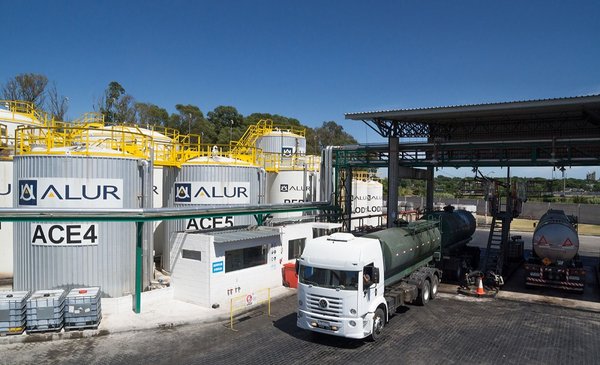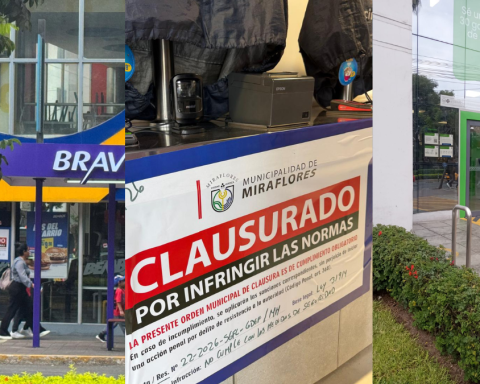Ancap’s Board of Directors resolved this Thursday, December 23, to introduce changes in the production and mixing of biodiesel with diesel from its subsidiary Alcholes del Uruguay (ALUR) from January 1st. A Article voted in the latest Accountability Act eliminates the obligation to mix 5% with diesel and prevents Ancap from transferring the extra cost of $ 1.5 per liter over the price paid by Uruguayan consumers. This is because from next year the Ursea will not incorporate the surcharge of that local biofuel to the Import Parity Price (PPI) of diesel that it calculates monthly.
The oil entity chose to apply a transition process while looking for commercial options to place that production and that is why it will only mix a maximum of 2.5% biodiesel for each liter of diesel in case ALUR has no where to sell that biofuel.
One of the possibilities that came to be analyzed in the options menu was to directly lower the curtain to that industrial unit, but in recent months commercial options emerged that can give sustainability to ALUR’s biodiesel.
According to the resolution of the Ancap Board of Directors, to which El Observador had access, it is noted that “the elimination of the mixture, being necessary to reduce the cost of Ancap’s diesel, It may imply immediate economic and financial damage to the groupThe definitive closure of ALUR’s biodiesel division would imply a loss of some US $ 11.5 million on the balance sheet of that subsidiary, which is what remains to be amortized from the 20-year investments that were made in that business unit where today about 40 people work.
New opportunities
In a passage of the Board’s resolution, it is indicated that the “new reality” may open for ALUR “new opportunities in business lines and new markets where to place its biodiesel production”, which today is entirely destined for Ancap.
“In the international market there is a growing and sustained demand for biofuels, by-products and derivatives and commercial contacts already made with various actors, show that the capacities and abilities developed by ALUR and its industrial assets are of value for potential clients or strategic allies” , Ancap said.
In this context, it was considered that it was in the “interest” of Ancap and ALUR to “maintain the operation” of the Capurro plant to “ensure the availability of its offer to capture the aforementioned business opportunities.” The oil entity added that ALUR “is working together with grain producers to obtain environmental certification for their raw materials, to ensure the best prices for their products in export markets.”
Reduce mixing temporarily
Currently, ALUR is in full implementation of the Canola 2021 Plan and as of December 31 of this year, it expects to have in its stocks approximately 32,600 tons of this oilseed, in addition to crude oil from that grain and 7,000 tons of sunflower grain. “This represents a volume of raw materials and intermediate products sufficient to cover a minimum of four months of mandatory demand until December 31, 2021, which makes it convenient keep some level of mix lower than the current one temporarily“.
In any case, Ancap maintains that this new legal change that eliminates the obligation to mix biodiesel with diesel “leads to the urgent need to rethink ALUR’s production and commercial strategy which may temporarily require the continuity of supply to Ancap “.
Ancap’s Board of Directors resolved to entrust the general management, led by Ignacio Horvath, “the negotiation for the modification or replacement of the current contract for the supply of biodiesel produced by ALUR, to ensure the purchase of the volume that cannot be marketed in other destinations or markets, without exceeding 2.5% of total volume planned to cover the demand for Gasoil 50-S of the Uruguayan market contained in the budget initiative for fiscal year 2022 “.
Ancap’s management was also entrusted with “the analysis and evaluation of providing ALUR administrative and logistical services for the export of biodiesel” in accordance with the current legal framework.
Likewise, Ancap’s representatives in the ALUR Board of Directors were entrusted “to provide everything necessary in the sphere of said company for the reformulation of the current business plans.”
The Executive Power will define next week which fuel rates will be applied from January 1st. Due to this effect of biodiesel, the price of diesel should be reduced by $ 1.5 per liter. You also have to consider what the latest PPI will show as of December 26 (so far it has a 10% drop) and the extraordinary profits that ANCAP has from the sale of diesel to UTE for the export of electricity to Brazil.
The contract with Cousa
The milling contract that ALUR has with the Cousa oil company is valid until 2029, and it must notify three years before (2026) that it will not continue to use it. Official sources had warned El Observador that the way in which that contract was structured (during the administration of the Broad Front) left the Uruguayan state company in a weak position.
Contract take or pay (you have to pay even if the grinding is not used) establishes the payment of almost US $ 10 million for the milling of 170 thousand tons (soy base) to Cousa. In a normal regime, the production of ALUR reaches a volume that is between 150 thousand and 155 thousand tons, but the possibility of grinding 260 thousand tons per year is enabled, paying a variable additional in case new destinations arise for the export of biodiesel.

















